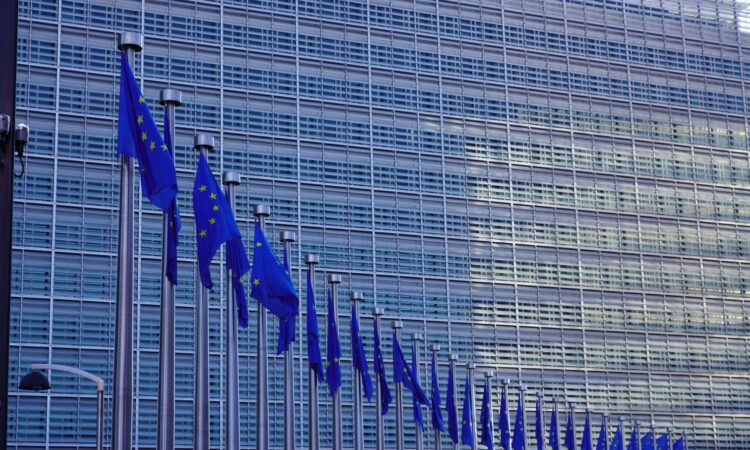
EU member states’ ambassadors have tentatively agreed to utilize windfall profits derived from frozen Russian assets to finance arms supplies to Kyiv, Ukraine.
Following Russia’s invasion of Ukraine in 2022, EU countries collectively froze assets valued at hundreds of billions of euros.
If approved at an upcoming gathering of EU finance ministers next Tuesday, the interest generated from these frozen assets, estimated to be up to €3 billion (£2.5 billion) annually, will be directed towards purchasing weapons for Ukraine.
Ursula von der Leyen, the President of the European Commission, emphasized the significance of utilizing these funds for enhancing security across Ukraine and Europe.
Valdis Dombrovskis, the European Trade Commissioner, echoed this sentiment, stressing the urgency of delivering the funds to Ukraine promptly.
He proposed that the initial €1 billion tranche, primarily earmarked for military support, should ideally reach Ukraine by the summer.
Dombrovskis further emphasized that Russia would bear direct responsibility for its actions.
German Chancellor Olaf Scholz previously advocated that approximately 90% of the revenues generated from frozen Russian assets should be allocated to arms purchases for Ukraine.
Pending ministerial approval, the legal framework would allocate 90% of the proceeds to an EU-managed fund dedicated to military aid for Ukraine, with the remaining 10% supporting Kyiv through other means, according to sources within the EU.
The estimated value of frozen Russian assets within the EU stands at nearly €211 billion (£181 billion), with a significant portion held by Euroclear, a Belgium-based clearing house.
The Group of Seven (G7) nations collectively froze around $300 billion worth of Russian financial assets shortly after Moscow’s invasion of Ukraine.
Subsequently, deliberations within the EU and other G7 countries have focused on the utilization of these funds to assist Ukraine.
Belgium, holding the EU presidency until the end of June, expressed its commitment to utilizing the seized profits to bolster Ukraine’s recovery and military defense in the face of Russian aggression.
The appropriation of these profits has been under discussion among EU officials and heads of state since the onset of the conflict.
However, logistical challenges, including objections to a 25% tax imposed under Belgian law, initially hindered their deployment.
Belgium has since agreed to waive this tax, facilitating the allocation of funds.
European central bankers, while initially cautious due to concerns about setting a precedent that could disrupt global financial stability, have ultimately supported the decision to utilize these funds.
Nonetheless, the Kremlin has condemned the seizure of interest generated from frozen Russian assets, characterizing it as an assault on European and international legal frameworks.
In summary, EU member states are poised to redirect interest from frozen Russian assets towards supporting Ukraine’s defense efforts.
Pending ministerial approval, the majority of these funds will be allocated to arms purchases for Ukraine, with a portion designated for other forms of assistance to Kyiv.
This decision reflects a coordinated effort among EU nations to respond to the ongoing conflict in Ukraine while navigating legal and logistical challenges associated with asset seizure.
Click here for more News & Current Affairs at EU Today
_____________________________________________________________________________________________________________

YouTube: https://www.youtube.com/@eutoday1049






